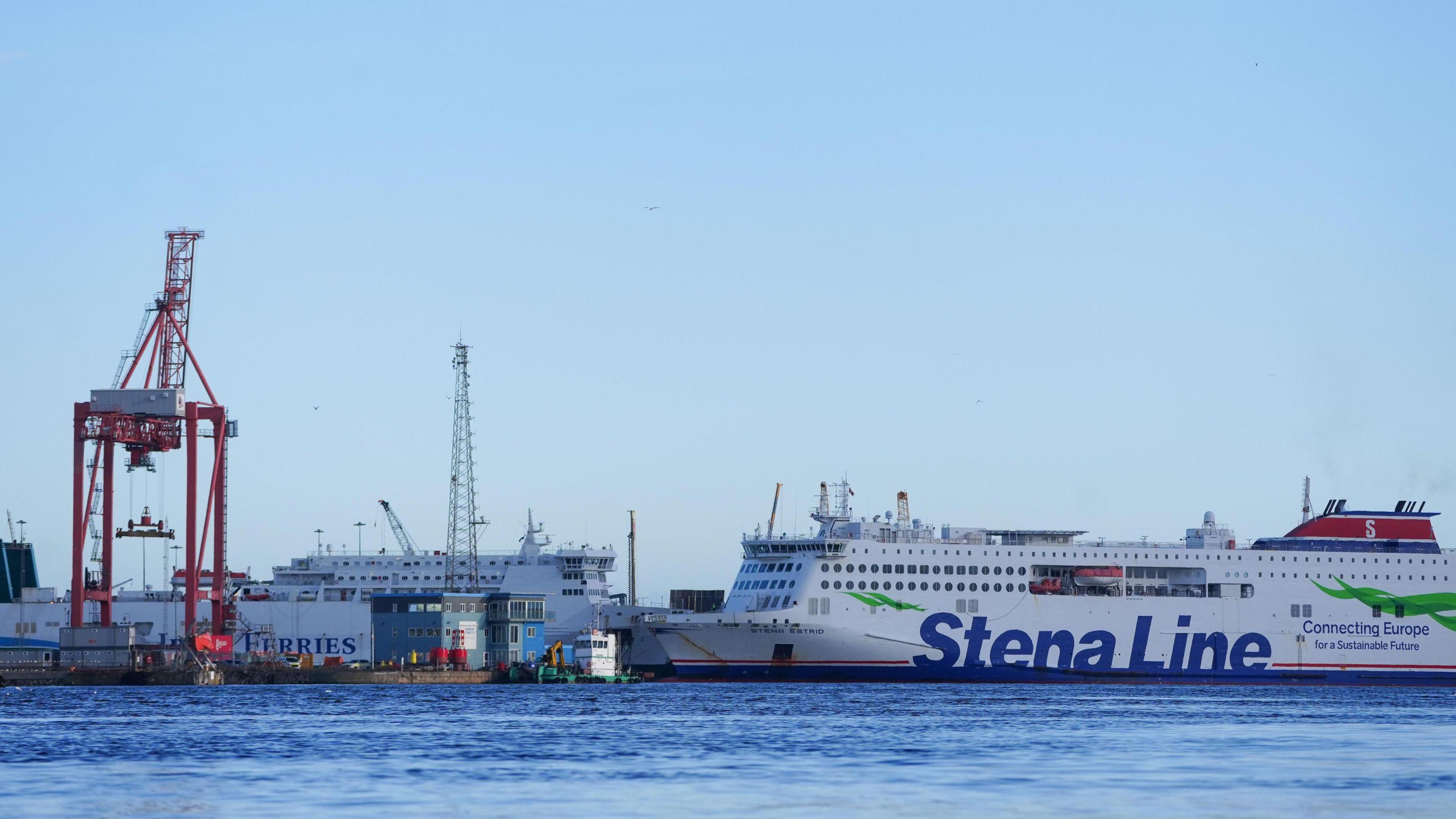Storm-damaged port partly closes again for repairs

Terminal 3, which has been closed for about seven months, will close again until November
- Published
One of Britain's busiest ports impacted by storm damage will operate at limited capacity for two months to allow for maintenance work.
Two berths at Holyhead, which links north Wales and Dublin, were damaged during Storm Darragh in December 2024, affecting thousands of travellers and parcel deliveries over Christmas.
Following five weeks of total closure, the port partially re-opened with Terminal 5 in January, while the second, Terminal 3, re-opened in July. But is has now closed, and will not reopen until November.
Both Stena and Irish Ferries will share Terminal 5 during the planned work, which shouldn't impact the number of services but will mean an amended timetable.
Holyhead port set to fully reopen on 1 July
- Published17 February
Town counts cost as ferries resume after storm
- Published16 January
Partial reopening of storm-hit port on 16 January
- Published31 December 2024
The remedial works will see both operators revert to the timetable that was in place during the previous partial closures.
In a statement, Holyhead Port Authority, operated by Stena Line Ports Ltd, said: ""This work has been held until September to effectively manage the high volume of traffic during the summer season.
"During this period ferry operators will share Terminal 5 berth and operate a full timetable. Please check your ferry operator website for timetable details.
"This phase of work has been planned and scheduled to allow the work to be undertaken outside of the summer period.
"Work must be undertaken from the sea and weather dependent. Therefore, September is the optimal time for this maintenance and improvement work, minimising the risk of adverse weather conditions."
Irish Ferries added the sharing of the berth will "reduce the time available to load and discharge unaccompanied freight".
Holyhead, the UK's second busiest roll-on roll-off port, sees two million passengers a year and 1,200 lorries and trailers crossing the Irish Sea route every day.
Experts estimate the economic impact of Holyhead Port and its supply chain in north Wales is more than £100m a year with 1,000 jobs locally relying on the route.